Healthcare. In the not-so-distant past, this word has been associated with sterile, linoleum hallways, uncomfortable waiting rooms, and the unmistakable scent of isopropyl alcohol. Constantly under scrutiny, many criticize the system’s limitations, and emphasize its failures, especially in the contemporary landscape of the coronavirus. However these shortcomings of the current, overwhelmed system provides space for improvement and innovation.
The coronavirus pandemic has prompted doctors and patients alike to reconsider the risks associated with their daily activities. What used to be a simple check-up appointment has now become an instance of potential exposure. However for many, not receiving healthcare to minimize risk is simply not an option. Telehealth offers the safety-conscious alternative to in-person appointments, and minimizes risks of exposure while maximizing patient care.

Kate Ryder (LSA Honors College ‘04), CEO of Maven Clinic and University of Michigan alumna, first founded this company with a vision to provide women access to the support and healthcare they need to continue to succeed in the workplace after becoming a mother.
“There was an amazing opportunity to do something I was so personally passionate about that affected me, but also had an amazing opportunity,” Kate said.
“My female friends who were having families were not getting the support they needed, and were completely underserved healthcare consumers,” she added, “there just were no companies serving the core needs of women.”
In a world where a jaw-dropping 43 percent of women permanently withdraw from the workplace after becoming mothers, Kate Ryder saw a window to change not only telemedicine, but also the way America perceives motherhood.
“Our model, where all our members get unlimited access to our telemedicine network in all of our programs- it is very unique that we don’t bill per visit, we bill per program,” she said. “So the whole point of the program is to drive an outcome.”
Maven’s programs range from fertility solutions, to adoption resources, to support for women returning to the workplace. These programs enable a woman looking to safely deliver a healthy baby and then return to work to do so without the obstacles associated with in-person clinical visits.
As a digital healthcare company serving consumers in a world profoundly affected by coronavirus, Maven Clinic is pioneering a future where medical consultations, diagnoses, and check-ups occur from the comfort of a home instead of a sterile office. With the strain on the healthcare system caused by the coronavirus pandemic, the demand for telehealth programs has increased exponentially.

With telemedicine comes more access, and you can deliver telemedicine in a much more cost effective way than a brick and mortar office, hospital, or urgent care facility. Additionally, digital healthcare companies eliminate the risk of face-to-face contact with a provider, making care more affordable, convenient and accessible to the elderly, handicapped, immunocompromised, and other vulnerable demographics.
“[Digital healthcare] will give parents peace of mind and deliver parents more specialists and access to lower income kids, who might have special needs or behavioral health needs that they weren’t getting before,” she said.
To Kate, “There’s a silver lining in how healthcare is shifting to a more value based model where public health matters, and outcomes of patients matters and the consumer matters.
“We can finally give women’s health more support with a more integrated and holistic model. There is a great opportunity to improve the entire healthcare model, especially for women’s health and pediatrics.”
Telehealth works to realign the focus of the healthcare industry from profits to patients, as helping and healing patients is the crux of the medicine. The coronavirus has affected the United States in an immeasurable, deeply nuanced way. It has brought national attention to the limitations of the traditional healthcare system, and created an opportunity to reimagine the way we provide care to those who need it most.
Digital telehealth solutions company, Maven Clinic, has been working to change the way we, as a society, think about the healthcare system. The deployment of telecommunications technology to reimagine the way Americans access medical professionals is a step toward modernizing an antiquated industry.
In a world where maximizing digital solutions has become a global priority, Maven Clinic works toward mitigating the effects of the coronavirus, and through the power of technology, and champions a future of safe healthcare for all.


